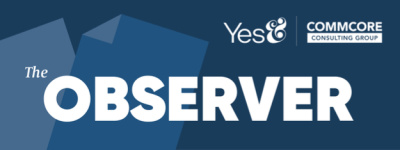New York celebrity chef Mario Batali stepped into a real stew of his own making last week after he equated bankers with Hitler and Stalin during remarks at a Time Magazine event to propose Persons of the Year.
As anyone speaking in public should anticipate these days, his remarks went viral within minutes, with the predictable ensuing firestorm. The fact that his comments were greeted with equal rage and glee depending on which side of the burgeoning Occupy Wall Street movement the audience is on only served to fan the controversy over his remarks. Batali’s apology appeared almost beside the point; it has been lost in the growing debate over whether he was right or wrong, complete with “snap” surveys and endless blog commentaries on both sides of the issue. Of course, bankers are now using social media to urge a boycott of Batali’s restaurants.
It is increasingly clear that despite reminders from communications professionals like the consultants at CommCore, and the endless examples of the consequences of being careless in public or via social media, people simply forget how exposed they are when they comment. Whether it’s Republican Presidential hopeful Rick Perry recognizing that his recent debate gaffe and awkward effort at recovery will be repeated online long after the traditional news cycle has forgotten him, or Pittsburgh Steeler star Rashard Mendenhall’s series of ill-advised Tweets, those in the public eye regularly lose sight of the risk of shooting from the hip.
All we can do is issue a reminder to public speakers in a conference, public event, scientific poster or key note speech: every Smartphone is a camera, every member of an audience is a potential tweeter, and every image of yourself can end up as a viral sensation on YouTube. If you are a public figure, think before you speak; pause before you react; hesitate before you push the “send” button. Train yourself to be aware of an undeniable fact of communications: just because you think you know what you intended doesn’t mean anyone else cares. Perception is reality more than ever in today’s real-time, interactive, shared multi-media world.
How would you have handled Batali’s comments if he were your client?

